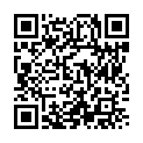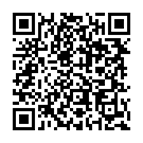
The Lung Screening Program is now available in Central and Eastern Zone communities. Central Zone communities include: Halifax, Dartmouth, Bedford, Sackville, Eastern Shore and West Hants. Eastern Zone communities include: Cape Breton, Richmond, Inverness, Victoria, Guysborough, and Antigonish counties.
The Lung Screening Program will eventually be available across the province.
The goal of the Lung Screening Program is to prevent lung cancer and to find lung cancer at an earlier stage when treatments work best.
The lung screening program has three key parts:
- information about improving lung health
- supports for people who smoke and who are interested in quitting, and
- a CT scan for people found to be at high risk for lung cancer. About half of all people who call the program will not be found to be at high risk for lung cancer. They will not benefit from a CT scan and will not be offered one.
Being screened for lung cancer is about looking for cancer before there are warning signs or symptoms. It is a step you can take for your health. For people at high risk for lung cancer, screening can save lives.
Lung cancer is one of the most common cancers. It is the most common cause of cancer death in Nova Scotia. The Lung Screening Program is here to help. When lung cancer is found early, it can be cured.
Contact
The phone number for the Lung Screening Program is 1-833-505-LUNG (5864)
Email: lungscreening@nshealth.ca
How do I access the program?
The Lung Screening Program is now available in Central and Eastern Zones. Nova Scotians residing in these areas are invited to call the Lung Screening Program if they:
- are between 50 and 74 years old,
- have a history of daily smoking for at least 20 years (this includes anyone who has quit smoking but has a history of daily smoking for at least 20 years),
- have no warning signs or symptoms of lung cancer,
- want to lower their risk of lung cancer or find it early when treatment works best.
A person’s health care provider may also refer them.
What will happen at my appointment?
If you contact the Lung Screening Program directly, please leave a message with your name, phone number, health care number, email, and date of birth. A member of the Lung Screening team will reach out to them and arrange the next steps. If your health care provider has referred you, someone from the lung screening team will communicate with you about the next steps.
The first appointment is a telephone appointment with the nurse navigator. The navigator is a specially trained nurse. They will confirm your health card number so please have your card with you. They will ask about your health and whether you smoke now or if you smoked at one time and have stopped smoking, this will help them to determine your personal risk for lung cancer. Your answers will help in deciding what the next steps will be. The nurse will explain these next steps and answer your questions to help you make decisions. Everyone who is interested in stopping smoking will be offered information and support to help them quit. Smoking is the number one risk factor for lung cancer.
Will there be any follow-up?
Your follow-up appointment will depend on your answers to the questions the nurse navigator asks. If you are found to be at a very high risk for lung cancer, your follow-up appointment may be a CT lung scan if you decide this is the right step for you. If you are found not to be at high risk for lung cancer, you may be asked to call the program in one year to see if your personal level of risk for lung cancer has changed.
Not everyone who is between 50 and 74 years old and has smoked for at least 20 years will qualify for a lung CT scan.
Patient Education Resources
Information About the Lung Screening Program
Nova Scotia’s Lung Screening Program is for people who want to lower their lung cancer risk. This pamphlet explains who can be screened and how the program works. Contact information is included.
Understanding Your Lung Screening Results
This information is for people who have been booked for a lung screening CT scan or have already had a lung screening CT scan. The pamphlet gives information about lung screening CT scans, what kind of follow-up tests might be needed, and understanding your lung screening CT results.
Lung Screening Program - Frequently Asked Questions
Lung screening is about looking for lung cancer when you are feeling well and have no warning signs or symptoms. The goal is to find lung cancer early when treatment works best. This pamphlet answers common questions about the Nova Scotia Lung Screening Program.
Taking Care of Your Lung Health
Lung cancer is 1 of the 4 most common cancers in Nova Scotia. This pamphlet explains what you can do to take care of your lung health and lists possible signs and symptoms of lung cancer.
Preparing for Your Lung Screening CT scan
A lung screening CT scan takes detailed pictures of the lungs. This pamphlet explains what to wear to the appointment, what will happen at the appointment, possible side effects, and what will happen after the appointment.



